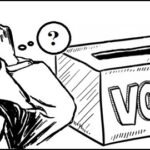by William Wilkens
For some time I have pondered the topic of liability within the paranormal. If a paranormal team were to cause physical injury to a person, or physical damage to someone’s home, business, or property, it would be obvious that they would be held legally responsible for such damage. But what about damages that are not so easily seen or measured? Emotional damages, mental anguish? The kind of harm that no one meant to cause, but is nevertheless being claimed by a client as a result of your interactions with them. We all know that we live in a world where lawsuits are common, but can paranormal investigators be held liable for merely trying to help someone…and for free?
Apparently, the answer is yes. I received an email from a paranormal team that is currently going through a potential lawsuit. An attorney for the client they were working with has already contacted them, and they had to retain their own legal counsel. The case has to do with the team’s response to evidence that was sent to them for review. The client is now claiming emotional distress due to their communications. Even if the case is heard and ruled in their favor, there is still a huge amount of time, money, and stress involved in the process.
Paranormal teams need to be aware of the legal implications involved with what they say and do. Things that you say in an email can be defamatory, and you can be held liable for statements you make orally as well as those made in written communications (see the following article on Lawyers.com regarding Email Defamation).
For those of us in America, we are protected by freedom of speech as outlined in the First Amendment. However, as the above article states: “Free speech lies in stating opinion, not false fact”. Never tell the client that they are hallucinating, or have anxiety, or have mental problems. Stating those things to someone can allow them to claim mental or emotional distress, especially since you are only speculating and not making a professional medical diagnosis. In summation: It’s best to not even give your opinion on medical issues.
Never post your communications with a client to a website or social media. If you want to share evidence that you gathered while investigating their home or business, make sure you get their permission in writing first, and be very clear where and how you intend to share such evidence. They might be ok with you sharing results of an EVP session, but they might not want any video of their home posted online. They might also not want their face or voice shared publicly either. Be clear and be thorough.
Do not post any information about a client (including their name) to any website or social media site. This is especially true about posting negative comments about someone. There is nothing positive that can possibly come of it, and there is no good reason to do it. Stay professional.
The aforementioned team that is facing the potential lawsuit has sent me the following advice that other teams should consider. This information was gathered as a result of their research and interactions with their own lawyer.
1. Get an LLC, or join a team that has an LLC. Ensure the team members are listed in the LLC also (very important!!).
2. Do not have a bank account or purchase ANYTHING under the LLC.
3. Client MUST submit the request for help via your process (like a form on your website), and a disclaimer should be visible. Have a disclaimer on the claim submission form on your website BEFORE they fill it out.
4. Any and all communications must be between you and the client, NEVER EVER post videos of the client, mention names on Facebook, blogs, or other social media.
5. If communicating via email there MUST be a footer or signature with a disclaimer. Never communicate with the client using another email, if you do it must have a disclaimer as well.
These things will not protect you if you knowingly or willfully cause harm to a client, but they will afford a certain level of protection if you had been acting in good faith.
The information I’ve included in this article is by no means exhaustive or comprehensive, and you should consult with your own attorney and do your own legal research before starting a team or continuing to work with clients. Laws may differ from state to state, or from one municipality to the nesxt. It would not be possibile to outline all potential legal requirements here, and it is your responsibility to ensure that you and your team members are protected. It might cost a little up front, but the legal protections you are afforded will be worth having over time.










